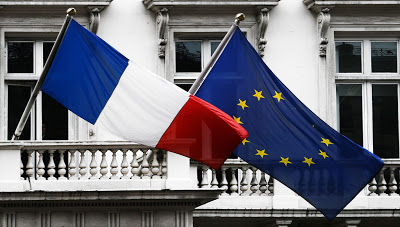Their defense minister is slamming the Trump administration for not being more ‘engaged.’ Be our guest.
The American Conservative, WILLIS KRUMHOLZ
Looming over this month’s big NATO confab was not only Donald Trump’s repeated insistence that its signatories contribute more to their own defense, but an ongoing discussion over America’s persistent role in the Middle East.
This was telegraphed recently at the Manama Dialogue confab in Bahrain—a get-together involving the Sunni powers in the Gulf region—where French Defense Minister Florence Parly slammed the Trump administration for moving troops out of northern Syria and for pulling out of the Iran deal. She said America wasn’t doing enough to stand up to Iran’s threats to Saudi Arabia, and that Barack Obama should have launched a military strike against the Assad regime after chemical weapons were used in 2013.
“We’ve seen deliberate, gradual U.S. disengagement,” said Parly. “The edifice [of American power] has started shaking and opportunists rush in.”
The French defense minister went on to decry that Turkish is being spoken in Syria, Russian is being spoken in Libya, and there is a heavy Chinese presence in Djibouti.
According to The Jerusalem Post, paraphrasing Parly, “this is important because France is the historical colonial power of Syria; French played a role in the 2011 revolution in Syria; and France has key relations with Djibouti, where it has a naval base.”
The subtext is that France is looking to get more involved in the Middle East, starting with a maritime effort geared towards surveillance.
Yet with all due respect to the French defense minister, her analysis is both backwards and tone-deaf. She rightly mentions France’s (and America’s) role in fueling the Syrian Civil War, but totally ignores the indescribable damage that has ensued. The human cost alone of that conflict has been staggering, yet nothing has been achieved aside from the rise of the Islamic State and other radical Sunni groups.
Parly also has the audacity to decry Iranian influence in the Middle East. Yet she glossed over the fact that that influence in Syria and Yemen, over its Shia Muslim friends, was directly proportional to the pressure being placed on those Shia groups by Sunni forces, which were backed by Western military might. In other words, Iran only became heavily involved in Syria after the West decided to foment a civil war and attempt to topple the Assad regime.
Likewise did the chaos in Syria resulted in Assad inviting Russia to enter the region.
It’s also silly for Parly to say America is pulling out of the Middle East. True, Trump has announced withdrawals—multiple times. But in practice, the U.S. has added thousands of troops in Saudi Arabia and only shuffled troops around in Syria. And despite expressing concerns over our continued footprint in Afghanistan, which remains a stalemate after nearly two decades, Trump has yet to significantly reduce troop levels in that country.
That being said, the Middle East really is more relevant to French security, so if they want to take the reins, America should be grateful. And if countries like Russia and China are dumb enough to get trapped in the region’s quicksand, not to mention a 1,400-year-old Shia-Sunni divide, we should start popping the champagne.
The biggest worry would be that those nations drag us into conflicts. Few remember that it was France, attempting to hold onto a last bastion of colonial power, that snared us into Vietnam. And the same thing happened to a degree in Libya: the U.S. and France toppled dictator Moammar Gaddafi, though President Obama thankfully balked at placing significant levels of U.S. troops on the ground. Libya is a mess today, but not for want of American military occupation. If that had happened, America would be mired in yet another endless war, forced to pick between multiple unsavory sides that have no respect for our values or interests.
Letting France handle the Middle East would be dependent on the U.S. actually getting out of the Middle East, not just talking about it. Though France is a strong ally, it lacks the ability to project force without American help, so it’s likely that Paris would follow Washington’s lead should it wisely choose to avoid endless involvement in the region. The Middle East is a briar patch to be steered clear of, not some treasured place that we need to “lead.”
Willis L. Krumholz is a fellow at Defense Priorities. He holds a JD and MBA degree from the University of St. Thomas and works in the financial services industry.









